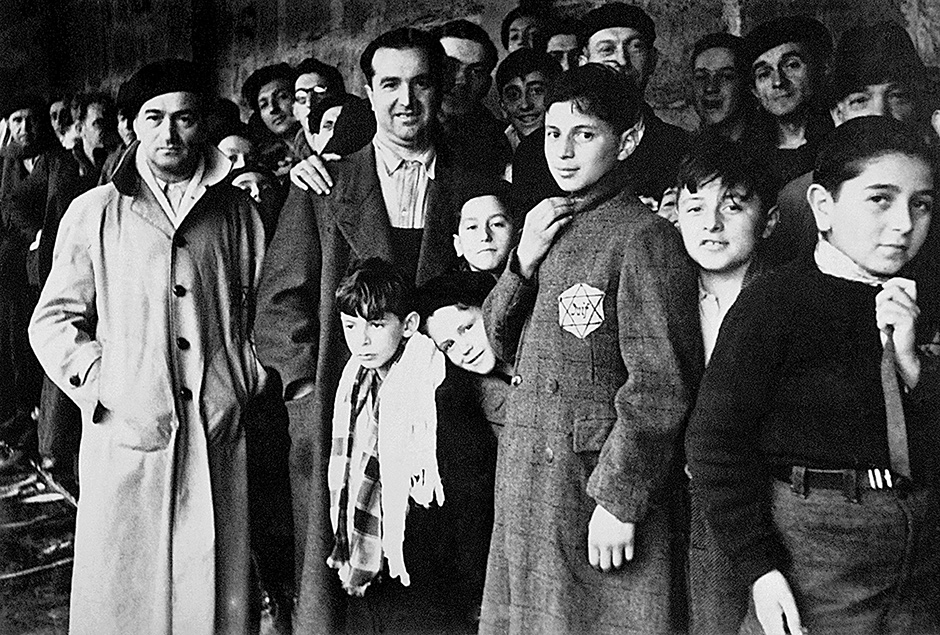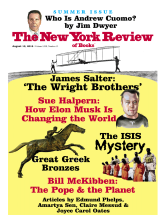The following is a translation of a talk given by the former French minister of justice in Lyon last February.
I have come many times in the past to Lyon to commemorate the roundup of Jews on February 9, 1943, in the rue Sainte-Catherine, a place that is still so charged with painful memories. I’ve come alone and I’ve come with members of my family. I’ve watched the ceremonies. But I myself have never chosen to speak. The children of those deported, who saw their loved ones vanish into the night of the death camps, were, so to speak, amputees. Life heals the wound, scars form. But there are times when the unspeakable pain returns, when there is nothing but an empty void. I dreaded that sense of emptiness and chose instead to come among you all, in an act of filial piety and faithfulness to memory. Today, however, the time has come to break my silence.
Why did they die, those who fell into the trap set for them by Klaus Barbie on this spot? They were arrested on the third floor, in the offices of the Union générale des israélites de France (UGIF), the General Union of French Jewry, where efforts were underway to find hiding places for Jewish children. They were herded downstairs amid the clatter of SS jackboots. They were thrown into trucks that stood waiting at the end of the street and taken to Montluc prison. That was their first stop on the painful journey that took them from Lyon to Drancy, and then on to the death camp at Auschwitz, in Poland.
And so they died as martyrs because the hatred for Jews, the Nazis’ demented anti-Semitism, condemned them to death. They died because they were Jews, and for that reason alone. Men and women, children and the elderly, their fates were sealed by the decisions of Hitler and his accomplices. The rest of it, the extermination of six million Jews on the European continent, was nothing more than a matter of implementing that decision by any means necessary, however atrocious. Peace returned, but the deportees did not. Everyday life resumed without them. There seemed good reason to believe that violent anti-Semitism had been drowned in the torrents of blood spilled in the Holocaust.
It was a fool’s paradise, we know that now. The religious anti-Semitism that reigned in the time of the Inquisition and the nationalistic anti-Semitism that prevailed during the Dreyfus Affair were succeeded by the racial anti-Semitism of the twentieth century, the worst of them all. Then, in the twenty-first century, a new breed of anti-Semitism sprang up, masquerading under the name of anti-Zionism, and fomented by the Israeli-Palestinian conflict, two thousand miles away from France. We believe in the principle of a just peace between the Israeli and the Palestinian peoples, guaranteed by secure and mutually acknowledged borders. But how do the challenges involved in achieving such a durable peace and the stubborn persistence of the conflict justify the atrocious crimes committed here in France, prompted by the fanatical ideology of Islamic extremists?
Exactly what is it that we’ve witnessed in the past several months in France? The age-old cry of hatred, “Death to the Jews!,” has echoed through the streets of Paris for the first time since the German Occupation. Synagogues have been attacked, and Jews have been insulted and harassed in the public streets. Ilan Halimi was kidnapped and tortured to death by a gang of thugs hoping to extort a ransom from his family because, as the stubborn old stereotype tells us, all Jews are wealthy. A young couple were violently attacked in their home in Créteil, the apartment was vandalized, and, most shameful of all, the young woman was raped in order to force information from them as to the whereabouts of an imaginary fortune. In Toulouse, worse yet, Jewish children were murdered in a high school, a latter-day massacre of the innocents.
And just recently, we have experienced, in the aftermath of the massacre of Charlie Hebdo journalists and the murder of two policemen, the taking of Jewish hostages in a kosher supermarket. Four of the hostages were killed in cold blood once the killer had ascertained to his satisfaction that they were Jews. In Nice, a French jihadist attacked and stabbed three soldiers who were guarding a Jewish cultural center. When questioned, the attacker had nothing to say but expressions of his hatred for France, French soldiers, and Jews.
And so, we survivors of the dark years of the Occupation have watched in horror as anti-Semitism has once again reared its bloody face. For when Mohammed Merah, in a Jewish high school in Toulouse, chased and caught a little girl aged eight as she tried to run away, grabbed her by the hair, and shot her point-blank in the head, he was reenacting the deeds of the SS Einsatzgruppen as they liquidated Jews in the ghettos of occupied Europe. When someone kills a child in that way, for being born a Jew, what can we call that if not the worst kind of anti-Semitic crime? In the commission of these crimes, these murderers also commit the gravest of travesties against the Muslim religion in whose name they dare to claim they act, a religion that according to Muslim theologians is a source of peace.
Advertisement
The truth is simple: these men are barbarians every bit as much as their Nazi forerunners who did their work here seventy-two years ago, driven by the same anti-Semitic hatred, murdering millions of Jews, including those whose names are inscribed on that plaque. For us, the sorrow and the pity are not selective. We do not mourn only our dead. We also salute the journalists of Charlie Hebdo, who died for freedom of the press. Our compassion goes out to their families, who have suffered so, and to the families of the policemen slain in the line of duty.
As for us, as Jewish citizens of France, tireless defenders of the values of the French Republic, in the name of all our martyrs, we shall fight to the finish, by all and any lawful means against racism and anti-Semitism, this leprosy of mankind, which remains, always and wherever it appears, a manifestation of barbarism.
—Translated from the French by Antony Shugaar




